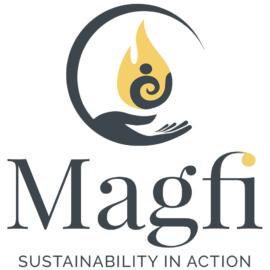Net Zero Food System
We will enable the transition to a net zero food system, measuring and quantifying the change through reduced CO2 equivalent emissions.

The food system is responsible for almost a third of greenhouse gas emissions, with connected challenges such as food waste, resource depletion and energy consumption. To reach net zero and mitigate the impacts of the climate crisis, we must scale a systems approach to change that enables the transition to sustainable and regenerative agriculture practices, creates new markets and opportunities for food waste and loss reduction, and empowers all stakeholders to play an active role in the circular food economy.
Want to learn more about the opportunities to achieve a net zero food system?

Connecting Food on blockchain transparency in the food system
Maxine Roper, Co-Founder of Connecting Food, highlights why transparency in our food chain is so important for both consumers and brands.

Childhood nutrition and health: are we doing enough?
Britons were the Lockdown Bingers of Europe, Study Finds

EIT Food's Flagship Education Programmes Awarded with Prestigious Accreditation
Latest related news
Looking for more content related to Net Zero Food System?
Related start-ups in our network
EIT Food: the University of Turin at the Service of More Sustainable Food Education

Is collaboration the key to transforming the food system?
Interview with Brij Sahi & Joana Gomes from SwissDeCode
The Pandemic has Changed the Eating Habits of Polish People
Health Trumps Price Among COVID-hit Consumers, Report Reveals
Covid changes Italian habits on food, planned purchases
Related partners
Agri-EPI Centre

Magfi

Scottish Association for Marine Science (SAMS)

Milcoop

Aarhus University

Connecting Food on blockchain transparency in the food system
Maxine Roper, Co-Founder of Connecting Food, highlights why transparency in our food chain is so important for both consumers and brands.

Childhood nutrition and health: are we doing enough?
Britons were the Lockdown Bingers of Europe, Study Finds

EIT Food's Flagship Education Programmes Awarded with Prestigious Accreditation
EIT Food: the University of Turin at the Service of More Sustainable Food Education

Is collaboration the key to transforming the food system?
Interview with Brij Sahi & Joana Gomes from SwissDeCode
The Pandemic has Changed the Eating Habits of Polish People
Health Trumps Price Among COVID-hit Consumers, Report Reveals
Covid changes Italian habits on food, planned purchases








